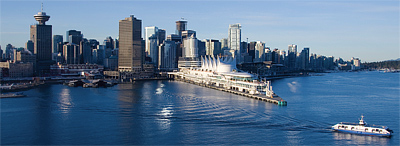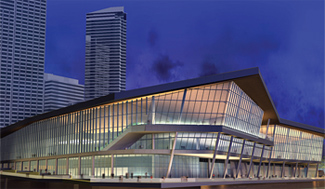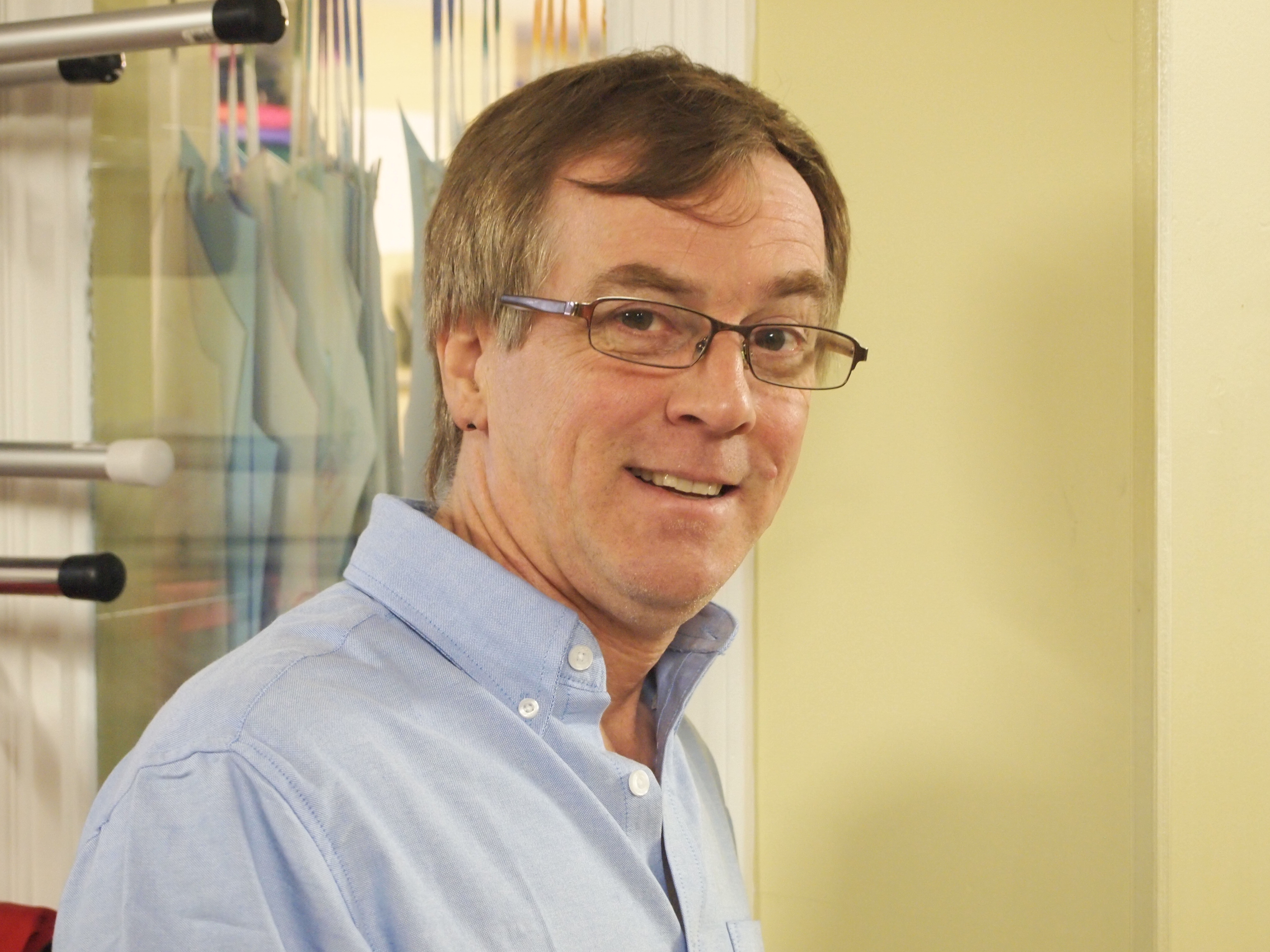Countdown to Vancouver

VANCOUVER, BRITISH COLUMBIA
With advertising budgets still tight, NBC is taking a frugal approach to the 2010 O-lympic Winter Games in Vancouver.
"Like everyone, we are working very hard to figure out how to do more with less," said David Mazza, senior vice president of engineering for NBC Olympics. "Our goal is to still deliver the kind of excellence our viewers demand, but as cost-effectively and economically as possible."
Fortunately for NBC, the 2010 games come with two cost-savers built in. For one thing, there are half as many events at these games as there are at a summer Olympics—fewer events means lower production costs for rightsholders. For another, the 2010 Games are across the border from Seattle in Vancouver. It is a lot easier to get here than it was to get to Beijing in 2008; both in shipping and bureaucratic terms.
NBC's 'GAMES PLAN'
To keep costs down while maintaining the quality of its coverage, NBC has made a few strategic decisions. First, this year's coverage will rely on one studio in the International Broadcast Centre (IBC) in downtown Vancouver; not two, as was the case in Beijing during the 2008 Summer Games. Meanwhile, shoots done at curling and hockey events will actually host a full daypart on site with small crews at the venues, who will send their finished product via fiber to the IBC.
Second, NBC is renting mobile HDTV production trailers from NEP Broadcasting and Game Creek Video to provide the bulk of its coverage. In Beijing, the broadcaster couldn't afford to use mobile units because "it would have been a three month rental to send them by ship, use them and return them," Mazza said. "That would have cost us a fortune." Having to pay to ship video "flight kits" isn't cheap either: In contrast, being able to rent production trailers with only minimal flight kits needed is far less expensive.

Third, NBC is keeping a lid on training costs. "Of the 2,000 to 2,500 people who will help us produce this broadcast, most will be freelancers," Mazza said. "In the past, we would have bought some of them together in person for training. But since they are mostly veterans of previous games, we have opted to use teleconferencing and the Web wherever possible to brief them; thus reducing the amount we spend on in-person seminars."
THE TECHNOLOGY
If NBC was a non-American broadcaster, it could get away with relying on the pool rightsholders feeds provided by Olympic Broadcast Services Vancouver (OBSV). But since American viewers are keenly interested in knowing how their athletes are doing, NBC has to provide such coverage regardless of these athletes' Olympic standings.
In practical terms, this means that NBC has to have its own gear to shoot American-focused video at the Games. This is where the mobile production trailers come in, according to Chip Adams, vice president of venue engineering for NBC Olympics.
"We will be using NEP Broadcasting's ND-4 trailer to cover the Opening and Closing ceremonies at Vancouver's BC Place, plus hockey games at Canada Hockey Place next door," Adams said. ND-4 is equipped with Sony HDC1500 cameras, Grass Valley switcher, Calrec Alpha audio console with Bluefin and EVS LSMs. "At the Pacific Coliseum, where figure skating will be taking place, we will use a mobile unit from the NCP Division of NEP, NCP 11," he says. Speed skating will be covered at the Richmond Olympic Oval using NEP's smaller SS-14 Supershooter, while Freestyle skiing and snowboarding will be captured at Cypress Mountain (West Vancouver) using Game Creek's Freedom Mobile Unit. Skiing at Whistler will be shot using NEP's SS-20 trailer.
"Our flight kit at the Whistler Sliding Center will be using Sony HDC-1400s," Adams said. "For venues where we can get away with short triax runs, like curling, we'll be using the recently introduced Sony' HSC-300 camera system instead." For mobile ENG, NBC will utilize COFDM RF transmitters from Gigawave, and more than 20 new Sony PDW-800 XDCAM camcorders. All of NBC Olympics' RF systems are being provided by Total RF.
"We are deploying a fiber-based camera interface system developed by Studio Technologies that transports video, Ethernet, audio (mic or line level) IFB and two channels of powered intercom between the camera location and a SNG truck or Host Broadcaster TOC," Adams notes. "It will allow us to quickly deploy setups for live interviews, venue coverage and talent hosting assignments in combination with our SNG trucks and VANDAs offered by the Host Broadcaster."
In the IBC, NBC will occupy 50,000 square feet on the ground floor. It will house the network's Olympic studio, editing suites, production areas for TV and Web, offices, and a commissary to keep the staff fed.
"Our studio cameras are all Sony HSC-300 HD," Mazza said. "All lenses at the IBC and the venues will come from Canon Broadcast. Our switcher is a big Sony MVS-8000, and we'll have Chryon HyperX3 effects generators, a Calrec Omega audio board and a combination of EVS and Omneon video servers. We'll have almost 40 Avid NLE editing suites, using both Symphony on Nitris and Media Composer on Nitris; both utilizing Avid Interplay and Isis storage."

The main media centre at the International Broadcast Centre, which will serve as the hub for the world's broadcasters at the Olympics. ©VANOC/COVAN In addition, "We'll use about 150 of the new Sony PDW-F1600 XDCAM optical decks, which proved to be a tremendously reliable and cost-effective way to record and store HD content in China," he said. "All the new XDCAM optical products we are using do both under/over cranking and 24p. We will also have five XDCAM/HDCAM linear editing suites—that's down from 22 linear suites in Sydney 10 years ago—for those times when tape/optical still makes more sense than NLE. All the video feeds to and from 30 Rock will be using Tandberg encoders and decoders on AT&T circuits."
Don't expect any virtual sets: NBC has specifically chosen to go for a real set that has more of a cozy feel to it, including a fireplace. "We will be interviewing athletes who are in their teens or early 20s," says Mazza. "Most are not used to being on television, so putting them in front a green screen isn't likely to make them relax. So we typically try to keep the studios warmer and more comfortable to put them at ease. After all, these are the Winter Games."
Web content will be edited on a combination of EVS and Omneon servers by a variety of seasoned pros and local broadcasting students onsite. "In Beijing, we pretty much threw up as much as we could on the Web," Mazza says. "Since then, we have been able to analyze what content people clicked through, and what they didn't. That data will help us decide what to produce in Vancouver, and what to send back through our core Cisco router over AT&T's OC-12 data pipe."
READY FOR THE GAMES
Mazza is upbeat about his network's Olympic readiness. "Beijing was the first time we went all-HD plus we had the massive growth of new media content; this is the second," he said. "So we have a better grip on what we are up against. Being close to home also helps. It is far easier to supply Vancouver than it was to supply China. Finally, our people are comfortable with HDTV and everything is falling into place as it should, so we are feeling pretty good. When the Games start in February, we'll be prepared!"
Get the TV Tech Newsletter
The professional video industry's #1 source for news, trends and product and tech information. Sign up below.
James Careless is an award-winning journalist who has written for TV Technology since the 1990s. He has covered HDTV from the days of the six competing HDTV formats that led to the 1993 Grand Alliance, and onwards through ATSC 3.0 and OTT. He also writes for Radio World, along with other publications in aerospace, defense, public safety, streaming media, plus the amusement park industry for something different.

